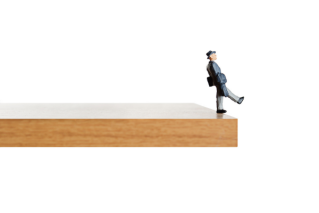
"In my opinion, your resume should be your strongest selling point."
Historically, cover letters were a must for any job application. While much more common and often requested in academia and internship programs, my more recent recruiting experience shows cover letters have become a rare occurrence for my industry - and are reviewed less and less by recruiters. In my opinion, your resume should be your strongest selling point. It should be tailored to the position you are applying to, and a strong professional summary at the top should provide enough information to persuade the reader to continue reading and reviewing the rest of your resume.
When reviewing an applicant for a hands-on laboratory role, I always start with the resume. Ensure your resume includes all lab techniques and instrumentation experience relevant to the position. Yes, you can include a cover letter, but your time may be better used by writing a strong resume.

"Use the cover letter to explain any special circumstances..."
Always plan to include a cover letter, but don’t count on it being read. For that reason, be sure that everything you want a potential employer to know about you is in your resume. Use the cover letter to explain any special circumstances or how you are a great fit for the position.

"... A creative, well-written cover letter can set you far apart from another that simply follows a bland 3-paragraph formula."
Briefly, yes, although their importance has changed over time. Cover letters are still the easiest way to show your personality before meeting a single company representative. Some hiring managers read every single cover letter after an initial resume screen. You can rarely predict a hiring manager's preference unless you know a well-connected person within that company.
Therefore, if there is an option to add a cover letter, it almost certainly won't hurt to provide one. Furthermore, a creative, well-written cover letter can set you far apart from another that simply follows a bland 3-paragraph formula. Corollary: if you're merely pasting a form cover letter from the internet and changing some words to tick the box, stop wasting your time.
Having said that, some job applications don't even have an option to add a cover letter, which speaks in part to their waning popularity; in which case, don't fret--you've saved some time and can pivot your focus to tailoring your resume perfectly to the role! You could also attempt to inject some "personality" into your resume, which is admittedly a balancing act, but if you're applying to multiple jobs per day, you should spend some time experimenting!

"A strong cover letter can demonstrate to the recruiter your genuine interest in the position..."
The cover letters are a key portion of the application file. Ideally, they should complement, but not duplicate, the information in the CV/resume. Cover letters should be concise and targeted, conveying your interest in the position, as well as why you are the best candidate. Several CVs can show comparable technical skills and experience, but the cover letter can make a difference in shortlisting or ranking candidates for interviews. A strong cover letter can demonstrate to the recruiter your genuine interest in the position, as you invested the time to build your application thoroughly. In addition to technical skills, the cover letter can also speak to any soft skills (or even personality traits) that might enhance your performance in the job.
The cover letters are especially important when switching fields because they are your first opportunity to explain the rationale for the career move and demonstrate how your skills apply to the new position, which might not be obvious from the CV alone.

"The cover letters are especially important when switching fields..."
While an actual ‘letter’ is less relevant in the age of online submission, you should have some sort of ‘cover letter’ prepared to use as part of an email, LinkedIn communication, or just talking points. This is especially critical when it might be hard to see your fit for a position when the resume doesn’t tell specific motivations or reasons for pursuing that job. This communication is a great way to show why you’re interested in the job. The cover letters are especially important when switching fields because they are your first opportunity to explain the rationale for the career move and demonstrate how your skills apply to the new position, which might not be obvious from the CV alone.
This article has been edited for length and clarity. The opinions expressed in this article are the author's own and do not necessarily reflect the view of their employer or the American Chemical Society.
ACS Career Consultants are experts and leaders working in the field of chemistry who have volunteered to support other ACS members’ career development through one-on-one career counselling. They can stimulate your thinking, ask important career planning questions to help clarify goals, provide encouragement, teach strategies for making meaningful career decisions, and aid you in your job search. Connect with an ACS Career Consultant today!
Copyright 2022 American Chemical Society (All Rights Reserved)








